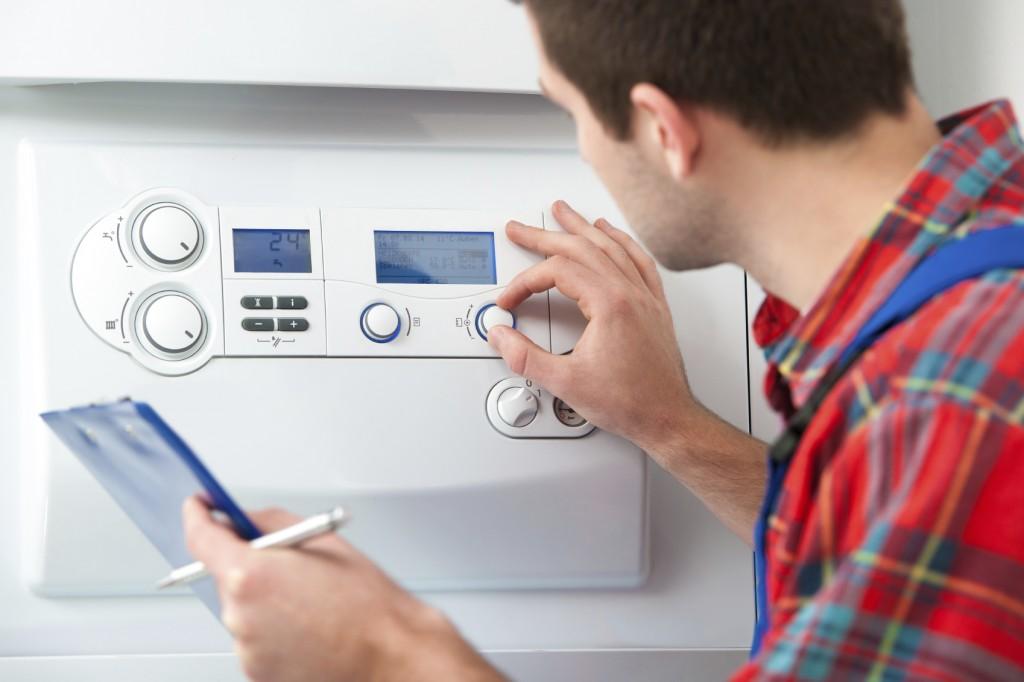
Boiler maintenance is incredibly important but all too often overlooked by UK homeowners. Boilers are not only costly to repair and replace, but when they are not working efficiently they will be costing you more to run and could even be putting your family’s health in danger.
Here are 11 simple boiler maintenance tips every homeowner should keep in mind.
1. Get the boiler serviced every year
To keep your boiler working at its best, prevent breakdowns, maximise its lifespan, keep heating bills low and ensure it is protected by the manufacturer’s warranty, it needs to be professionally serviced every year. This must be carried out by a Gas Safe engineer who can check all the elements are in safe working order and identify small issues before they turn into inconvenient and costly breakdowns.
2. Check the boiler pressure
To be able to circulate hot water around the pipes and radiators in your home the boiler needs to be set at the right pressure. You should check the pressure gauge to make sure it is working to the correct level according to the manufacturer’s user instructions. This is usually between 1 and 2 bar. If the pressure is too low or too high you can adjust this yourself. Find out more in What Pressure Should My Boiler Be?
3. Bleed the radiators every year (at least)
Over time air can become trapped in your radiators. These pockets of air will prevent the radiator from heating up fully and there may be cold patches. You can release this air by bleeding the radiators. Sometimes people will paint over radiator valves which can make them very difficult to adjust. Some force and a bit of WD40 may be enough to loosen it but if not, an engineer will be able to help you.
4. Balance the radiators
If the radiators which are furthest away from the boiler are cooler than those near the boiler you may need to balance them. Balancing radiators is not as straightforward as bleeding them, but can help the system to heat more evenly throughout the home.
5. Check for radiator problems
A common radiator problem is that they will get hot at the top but remain cold at the bottom. Usually this is because the debris and dirt has built up in the system over time and settled at the bottom of the radiator. This will not only be making it harder to heat your home but could be making your heating bills more expensive. You should contact an engineer who can perform a powerflush. If the radiator is not heating at all and the valve is definitely open, the valve may need replacing.
6. Check the boiler flame is blue
Boilers should always burn with strong blue flame. If the flame is orange or yellow you need to contact a Gas Safe engineer immediately as there could be a risk of a carbon monoxide leak.
7. Make sure the boiler is well ventilated
Boilers require plenty of space so that they are well ventilated so be sure to check that the boiler isn’t too cluttered, e.g. coats are not hung over it. Boilers can be housed in a cupboard as long as there is a minimum gap of 700 mm between the boiler and the obstruction or wall.
8. Look for dripping from the external pipe
The external pipe is called the overflow pipe and if you notice it is dripping water, this could suggest that the boiler is not operating properly. A Gas Safe engineer may need to fix the pressure release valve. Find a local heating engineer.
9. Make sure the flue is accessible
Flue regulations now state that flues must be accessible and visible so that cracks or loose joints can be spotted. If your flue is not accessible, e.g. it goes into the ceiling, a Gas Safe engineer will probably need to install an access panel.
10. Lag your pipes
Before the freezing weather of winter, it’s best to lag your external pipes. It’s really easy and cheap to do as you can buy ready-to-use lagging from a DIY shop. If the lagging prevents the pipes from freezing this could save you the hassle and expense of a boiler breakdown when you need your heating most of all.
11. Never try to repair a boiler yourself
If you think your boiler may need a repair you need to get in touch with a Gas Safe registered heating engineer. They are the only people legally allowed to work with gas appliances and can help you to ensure your boiler is working effectively and efficiently. All Boiler Guide approved heating engineers are Gas Safe registered, but you should always check their Gas Safe ID when they arrive at your property. Gas pipes and appliances can be very dangerous if not handled correctly which can have lethal consequences including fires, explosions or carbon monoxide poisoning.
The easiest way to find Gas Safe engineers in your area is to send us a request for quotes. We’ll find you quotes from up to 3 approved engineers who will provide free no-obligation quotes for the work. It’s then up to you to choose which quote – if any – you want to use.